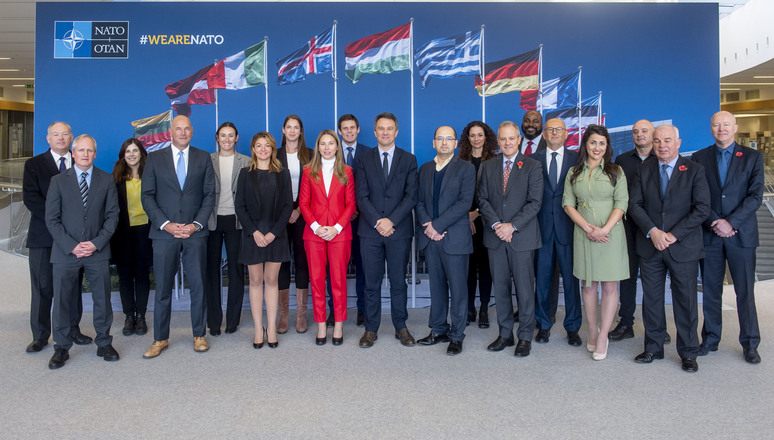The NATO Maritime Unmanned Systems (MUS) Innovation Advisory Board met on the 9-10 November 2021 for the first time at NATO Headquarters. It provides advice to NATO HQ on the development and use of Maritime Unmanned Systems and all new technologies in the maritime domain.

Since its creation in 2019, the MUS Innovation Advisory Board has been providing strategic advice to deliver capabilities and use new technologies to “change the game” in the maritime domain. The Digital Ocean Concept was presented in Spring 2021 at the Conference of National Armaments Directors (CNAD) and has been adopted by key Allied Navies. The Concept is designed to improve Allies’ capacity to ‘see our oceans’ through the creation of a global scale network of sensors, from sea bed to space, to better predict, identify, classify and combat threats. It envisages maritime domain awareness, subsea sensors, unmanned surface vessels, drones and satellites, and exploits AI, big data and autonomous systems, alongside conventional assets.
This week, the NATO MUS Innovation Advisory Board engaged with experts and staff at NATO Headquarters to discuss innovation methodologies to accelerate capability development, in particular testing and developing new technologies in the maritime domain.
The Assistant Secretary for Defence Investment, General Camille Grand, and the Deputy Assistant Secretary General, Robert Weaver, discussed and endorsed recent achievements by the Board. Mr. Grand said:
“A digital ocean is a fine example of an opportunity to exploit new and emerging technologies to maintain our operational advantage. We are committed to delivering the right capabilities our Alliance needs to carry out its core tasks and maintain our technological edge over potential adversaries and challengers. The MUS IAB are a very talented board who are committed to helping us achieve our goals, it is exciting and a privilege to have convened this Board here this week – I believe much good lies ahead!”
In line with NATO 2030, further development of the Alliance’s vision of a digital ocean will help mitigate the risks of climate change, protect undersea critical infrastructure and safeguard essential supply chains and strategic waterways in a more affordable, sustainable and safe way.
